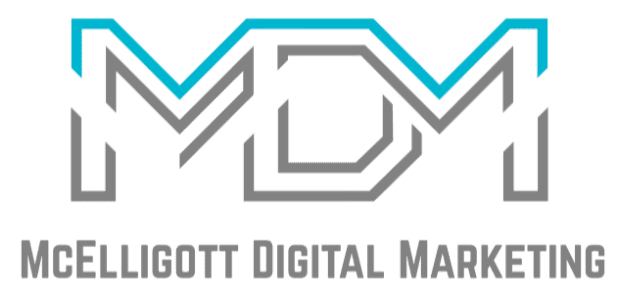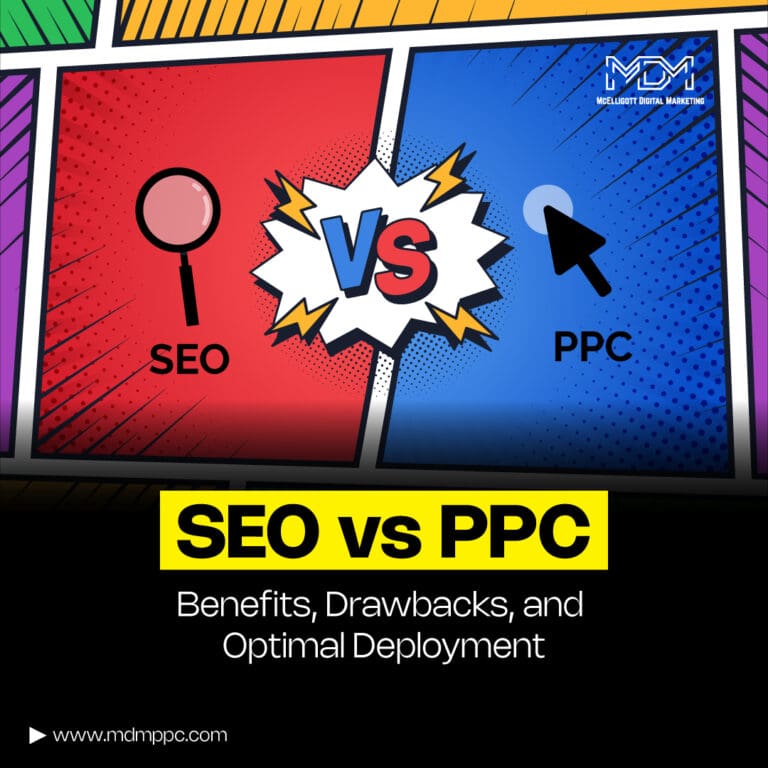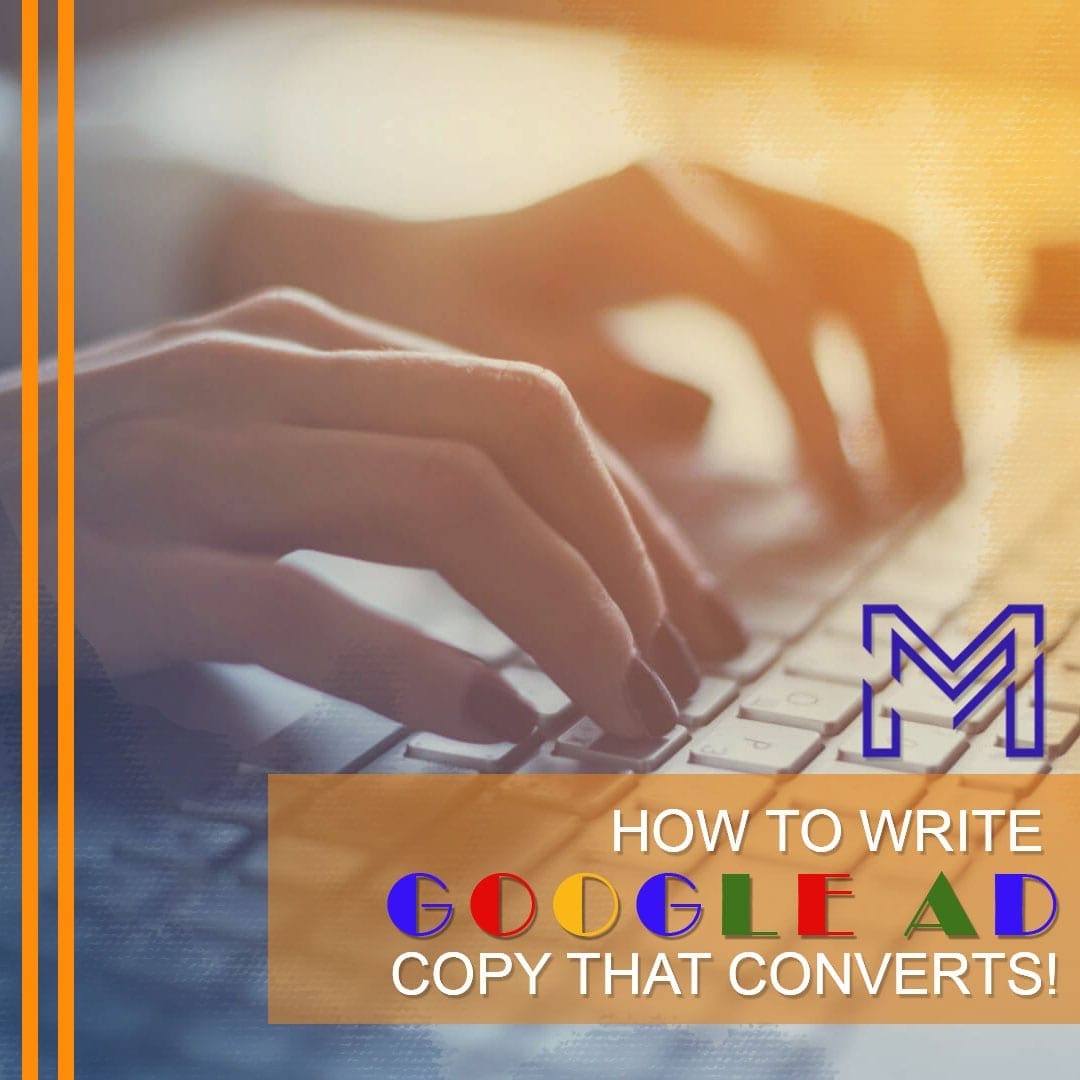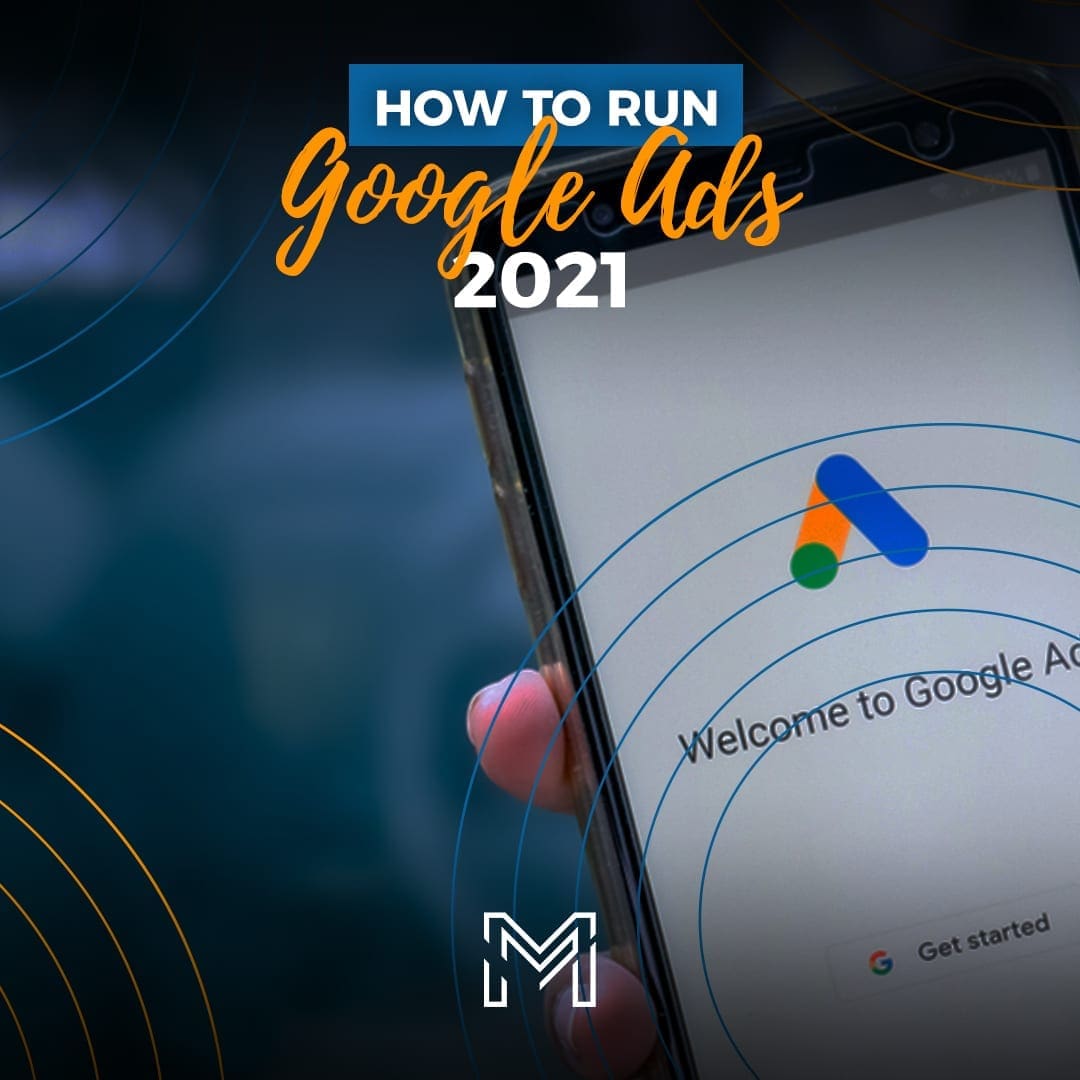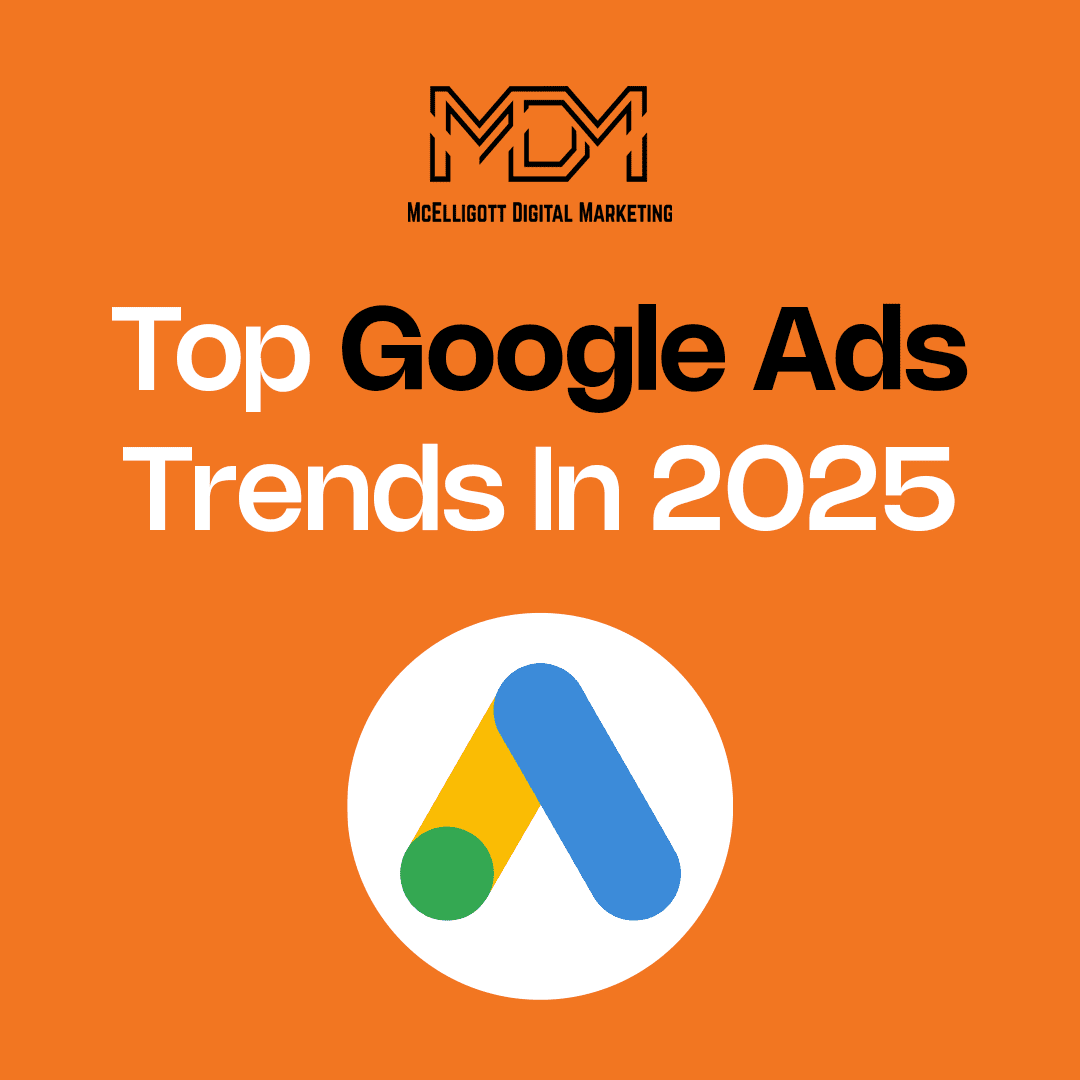SEO vs. PPC? Which one is the better?
From this question, what you really want to know is:
Whether SEO is better for your business or PPC. You want to be sure you’re investing your marketing budget in the right place. Pricing and position are the values we consider while evaluating PPC vs. SEO.
PPC or pay-per-click advertising lets your site appear at the top of the search results page but here you pay for each click that a visitor makes.
While SEO or search engine optimization doesn’t cost you directly, your page appears below the paid ads in the SERPs.
With PPC vs. SEO, it’s not a left or right road turn. SEO and PPC are not better than each other. Each of these strategies comes with a set of benefits and advantages, which we will discuss.
In this blog article, you’ll learn:
- What do PPC and SEO mean?
- Pros and cons of PPC and SEO.
- How do they work together for your business?
What is PPC?
PPC, or Pay-Per-Click, is an online advertising model that allows businesses to display their ads on search engines and websites.
The name says it all – you pay a fee each time someone clicks on your ad. Google Ads is one of the most popular platforms for PPC advertising, but there are many others out there.
Here’s how it works. You create ads with keywords related to your business, and when someone searches for those keywords, your ad can appear at the top or bottom of the search results. If someone clicks on your ad, you pay a certain amount, hence the “Pay-Per-Click” name.
Let’s take an example. ShoeBox, an online shoe store, uses Pay-Per-Click (PPC) advertising to showcase its running shoe collection.
They kickstart the process by carefully selecting keywords like “running shoes” and “athletic sneakers” relevant to their products. Crafting engaging ads with titles such as “Shop the Best Running Shoes!” and setting a maximum bid of $2 per click, ShoeBox is ready to compete in the digital advertising arena.
As users search for terms like “best running shoes” on Google, ShoeBox’s ad enters an auction where it vies for top placement. When a user like Sarah clicks on ShoeBox’s ad, they pay Google the bid amount (in this case, $2), and Sarah is directed to ShoeBox’s website, where she can browse and make a purchase.
This efficient PPC strategy not only drives traffic to ShoeBox’s online store but also allows them to control their advertising budget, making it a valuable tool in their digital marketing arsenal.
Benefits of pay-per-click advertising
1. Instant visibility to local businesses
One of the most significant advantages of PPC is the immediate visibility it provides.
Unlike SEO, which can take time to show results, PPC allows your ads to appear at the top of search engine results pages (SERPs) almost instantly. This is particularly advantageous when you run a local business as you need a quick boost in traffic and conversions.
2. Targeted advertising
PPC allows for precise targeting.
You can choose specific keywords, demographics, locations, and even the time of day when your ads will appear. This level of precision ensures that your ads reach your ideal audience, increasing the likelihood of conversions and sales.
3. Measurable results
PPC provides robust analytics and tracking capabilities.
You can measure the performance of your ads with precision, knowing exactly how many clicks you’re getting, how much you’re spending, and what your return on investment (ROI) is.
This data-driven approach enables you to optimize your campaigns effectively.
4. Budget control
With PPC, you have complete control over your budget. You can set daily or monthly spending limits, ensuring that you never exceed your allocated budget.
This flexibility makes PPC a viable option for businesses of all sizes, from startups to large enterprises.
5. Brand exposure
Even if users don’t click on your ad, they still see your brand name and message. This exposure contributes to brand awareness and recognition.
Over time, users who have seen your brand through PPC ads may be more likely to engage with your business.
The Cons of PPC
While PPC offers numerous benefits, you need to know its potential drawbacks to prevent it.
1. Costs can add up
PPC can become expensive, particularly in competitive industries.
The cost per click (CPC) varies based on factors like keyword competitiveness and quality score. High CPCs can quickly deplete your budget if you’re not careful, making it challenging to achieve a positive ROI.
2. Learning curve
Effectively managing a PPC campaign requires knowledge and expertise.
Creating compelling ads, selecting the right keywords, and optimizing campaigns can be complex, especially for beginners. That’s why businesses work with PPC management services or professionals to save time from learning the intricacies of digital marketing.
3. Click fraud
Click fraud is a concern in the PPC world.
Competitors or malicious users may click on your ads with no intention of engaging with your business. This can sometimes waste your budget and skew your analytics, making it challenging to gauge true performance accurately.
4. Short-term strategy
PPC is often considered a short-term strategy.
When you stop paying for ads, your visibility decreases immediately. In contrast, strategies like Search Engine Optimization (SEO) provide longer-lasting organic results, although with a longer ramp-up time.
5. Competition
In highly competitive industries, the cost per click can be exceptionally high. Smaller businesses with limited budgets may struggle to compete effectively against larger competitors in such environments.
What is SEO?
SEO- Search Engine Optimization, is a highly instrumental way to rank your websites higher in search engine results pages (SERPS).
When any user types some keywords to search for any product or service, good SEO makes your website more visible to the user on the search page.
For example – if you’re selling a product watch accessories, you would definitely target a good chunk of customers coming to your website and searching through it but that’s only possible when your page is visible at a higher rank on the page. And that’s exactly when incorporating keywords becomes important.
Only using keywords will not give your blog or website a higher rank, it’s true that it plays a significant role but you even need to know the trend of the market or trend in the buying behavior of the customers.
On-page SEO and off-page SEO are two equally significant approaches to take when developing an SEO strategy.
Let’s get a brief overview of what it is.
On-page SEO is a technique to get your site higher traffic by optimizing it for users and search engines.
Keywords highly matter in on-page search engine optimization because search engines like Google and others base their page results according to customers’ objectives on keywords and other factors of on-page SEO too.
Off-page SEO refers to the optimization that is taking place not on your website but outside of it to scale up the search engine rankings. Connection building is an important element used in off-page SEO.
Benefits of search engine optimization
What you can achieve by having an effective SEO approach, is you can drive higher clicks to your website or increase brand visibility, thus bringing in good revenue, and building the trust of customers and even loyalty towards your product.
We’ve identified four distinct advantages to adding SEO into your marketing approach and they’re definitely going to prove useful.
1.Increases website’s organic search traffic:
Organic traffic is users who arrive at your website through search engines like Google, Bing, etc. which are primarily free sources as well.
The underlying factor behind this is for search engines to quickly and easily identify the responsiveness of your website to the most pertinent solutions to people’s questions.
2. SEO is under budget
Unlike paid advertising, SEO is typically a very cost-effective method to boost revenue generation.
It does not require an extra expense like spending on creativity, design, copywriting and other stuff done in paid advertising. Also add the sum that you’ll end up paying to run those ads.
3. Builds trust and ensures dependability
While it is cost-effective, it is the best source to build brand trust and dependability by giving your brand to frequently appear in search results. Search engines place value on responsiveness, experience, and competence.
4. With a good SEO, you’re ahead of your competitors.
Having a proper strategy and research of the keyword trend lets you analyze what are the keywords your competitors rank for.
So designing a strategy that outweighs your competitors will give you an edge over them.
The Cons of SEO
SEO has some drawbacks as well and minimizing those demerits in your search engine optimization strategy will place you at a better position than your other competitors. Some cons of SEO are-
- SEO requires your patience and takes time.
You will not get the results overnight, you have to strategize first, then execute the plan chalked out and bide your time to see if your plan worked. It’s more like a trial and error method. Also, there’s no specific timeline since it depends on various factors.
- SEO strategizing cannot be done by anyone. It needs an expert in the field who knows the nuances of it so you have to plan your budget accordingly.
- Google penalizes sites for duplication of content. If there is any unethical practice to manipulate rankings, and it is termed as Black Hat SEO, your site might get penalized
- Having a good website is an asset but it needs continual maintenance and that is a significant disadvantage as it will require additional time and expense. A bad site experience for user may also be the reason for lower rankings.
How do PPC and SEO work together for your business?
In practice, the option should not come down to either SEO or PPC. Rather, both should be used.
PPC is the best tool for driving higher traffic within a short duration of time. On the other hand, SEO takes time to give the desired results if executed properly while being a more productive technique.
Here are 5 ways using which you can fine-tune your PPC and SEO together for your business:
1.Pursue more competitive keywords.
The effectiveness of both SEO and PPC campaigns is intricately linked to the selection of keywords, but it’s important to note that achieving organic rankings for competitive keywords can be a time-consuming process.
Furthermore, establishing a robust backlink profile is imperative for success in such keyword competitions.
2. By leveraging organic website traffic, create PPC audiences.
When you begin combining PPC and SEO strategies, you’ll notice that PPC ads often differ from organic search results.
While PPC requires additional data for refining your campaigns, SEO steadily increases your website’s traffic.
3. PPC helps recover missed possibilities for search engine clicks.
Simply holding the top organic ranking for a specific keyword doesn’t necessarily permit discontinuing PPC advertising for that keyword.
Organic results alone may not entirely replace your paid traffic. Therefore, pausing your PPC campaigns could potentially lead to a reduction in overall traffic, despite securing the top position in organic search results. PPC enables you to recapture clicks from users you might otherwise have missed.
4. Remarketing – a chance to connect with past website visitors.
Remarketing is a paid marketing technique that enables you to display ads to individuals who have previously visited a website or interacted with your content on social media.
Imagine your website is already generating a good amount of organic traffic. By launching a retargeting PPC advertising campaign, you can stay connected with these visitors and remain in their minds as they navigate their online choices.
Essentially, PPC complements your successful SEO efforts. While SEO introduces your brand to potential customers, PPC ensures that they remember it.
5. Enhance your brand’s online presence
When visitors type particular keywords in their search queries, PPC advertising gives you the chance to highlight your website.
This allows you to generate web traffic, even when the full impact of your SEO efforts hasn’t yet influenced your website’s search ranking.
Once your web pages begin to consistently appear on the first pages of search results for your targeted keywords, you can consider reducing your ad spend, which can lead to cost savings in your marketing efforts.
McElligott Digital Marketing has PPC and SEO experts in one place.
At McElligott Digital Marketing, we understand PPC and SEO are not alien to each other.
That’s why we’re a team of PPC practitioners, SEO experts, and web designers that closely work for our clients’ success.
If you want to know more about services, we’re ready to offer you a free consultation.
Get a free consultation with our experts at 833-7724-897 today.
